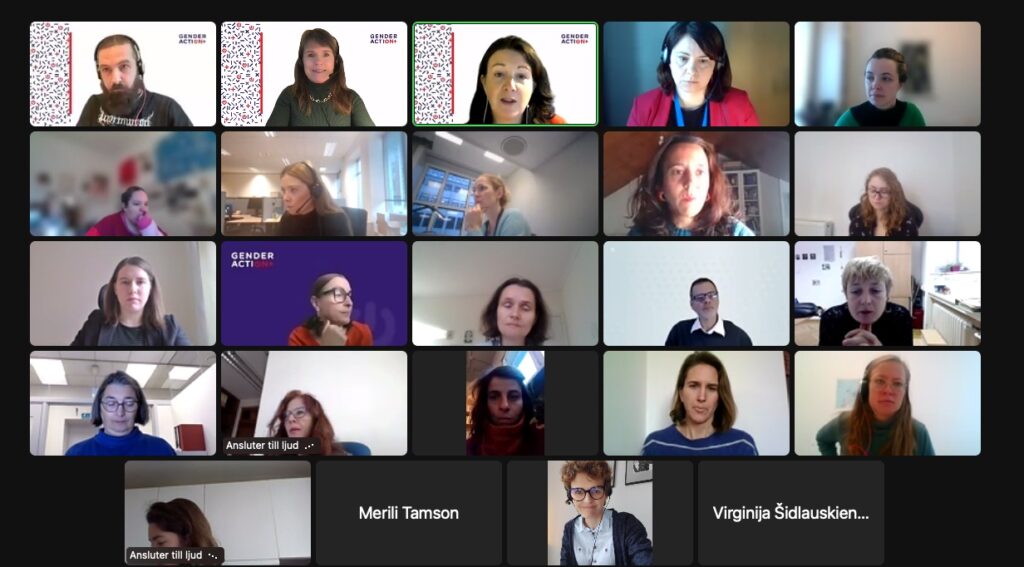The EU-funded GENDERACTIONplus project recently hosted its second stakeholder engagement event on 29 November 2023 to gather input and feedback on draft guidelines for establishing Gender Equality Plan (GEP) monitoring systems at the national level. Representatives of national authorities from 14 European countries actively participated in the online consultation, sharing valuable insights, needs and challenges. The event was organised and moderated by VA (Public & Science) as part of its stakeholder engagement work in the project.

Developed by partners within the GENDERACTIONplus project, the guidelines aim to provide concrete guidance on how to set up an effective monitoring system at the national authority level to monitor GEP implementation. Incorporating multiple levels of proposed monitoring, they are designed to meet the needs of both Member States and Associated Countries at different stages of national gender equality policy implementation, where GEPs are a mandatory state requirement as well as where they are not.
Following an introduction to the GENDERACTIONplus project and draft guidelines by Dr Jennie Rothwell, Senior Manager of the Centre of Excellence for Equality, Diversity and Inclusion at the Higher Education Authority in Ireland, participants were divided into smaller groups for more in-depth discussions.
The informative discussions reiterated the need for flexible guidelines due to the variation between countries. Overall, participants welcomed the recommendations and different levels of monitoring, and discussions indicated that shared responsibility at institutional, national and EU level is needed to implement these. In the next draft, participants would welcome more clarity on what is to be monitored at the different levels, what would be considered as mandatory, and what could be selected based on national context and progress.
“Consultation with stakeholders is critical for the development of the guidelines to ensure that they can be adopted as widely as possible.
Jennie Rothwell
Reflecting on the event, Jennie Rothwell commented “Consultation with stakeholders is critical for the development of the guidelines to ensure that they can be adopted as widely as possible. This event provided a platform for national level stakeholders to input into the draft guidelines in a structured way. The feedback collected will help to ensure that our project deliverables are informed by the insights of those working to advance gender equality in their respective countries.”
Feedback on the event was extremely positive, indicating that participants had valued the opportunity to contribute and that they had found the event “beneficial for sharing ideas and exchanging experiences” and had “learned new things”, as well as that the guidelines “will be very useful” and “contain a lot of food for thought.”
Once feedback from the consultation has been reviewed and incorporated, a final version of the guidelines will be submitted to the European Commission and available on the GENDERACTIONplus website at the end of January 2024.
